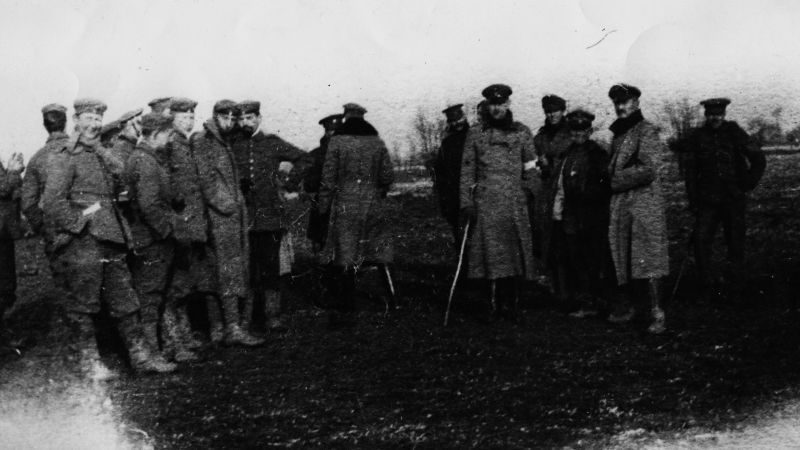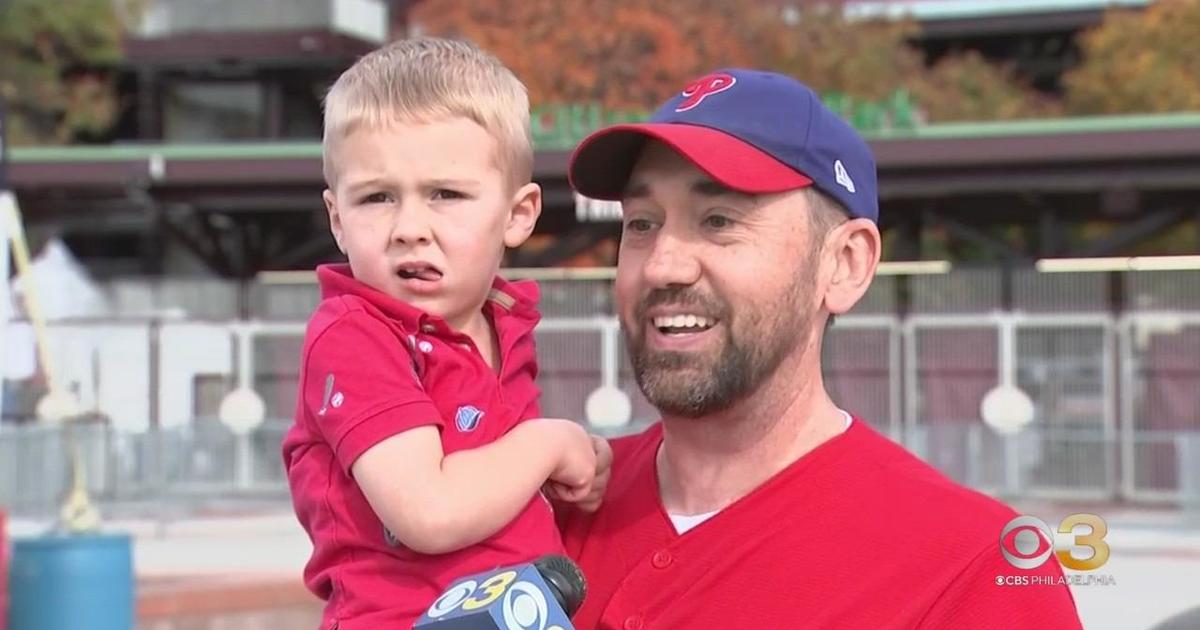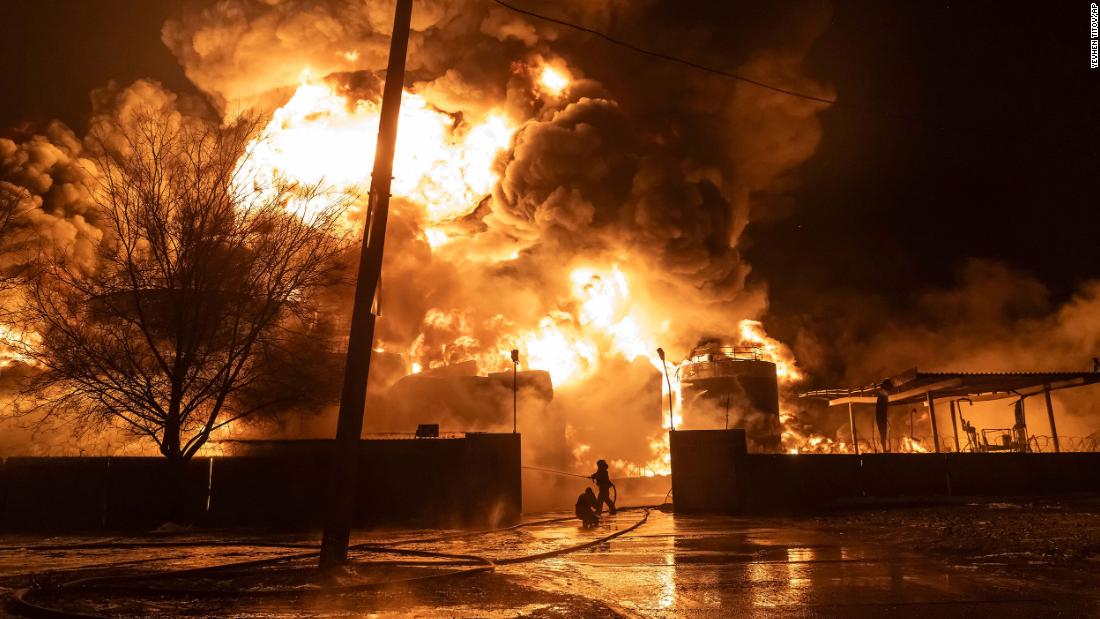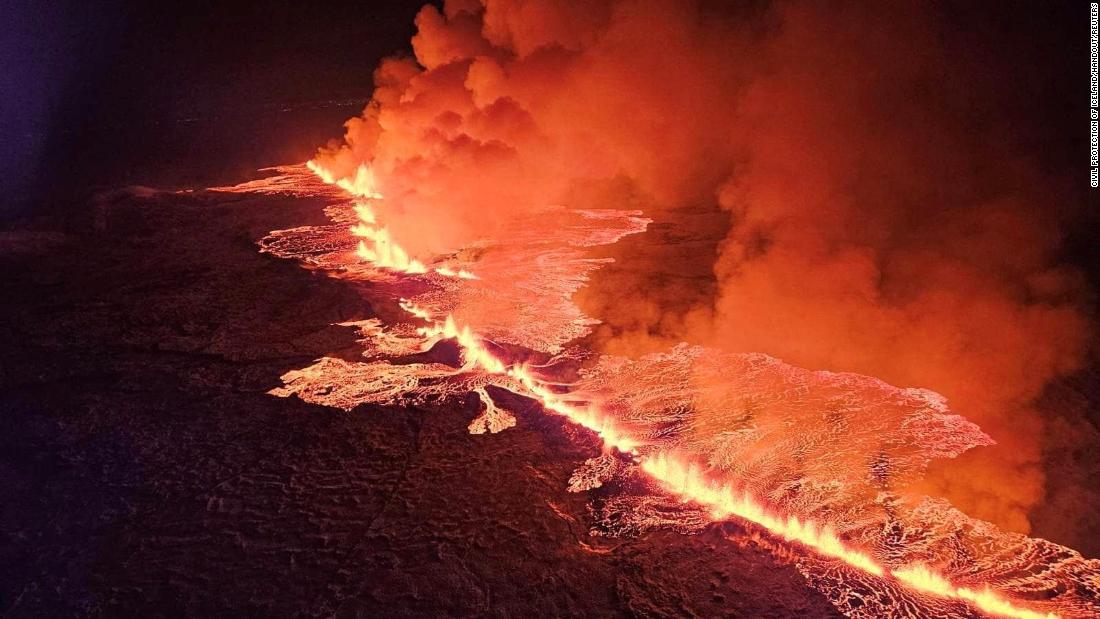What causes armies to lose the will to fight? Here’s what history tells us, and what Putin may soon find out

CNN
—
It was one of the strangest episodes in military history, an event so unusual that it was first treated as a myth.
At 8:30 pm on Christmas Eve of 1914 in the dank and muddy battlefields of northern Europe during World War I, a British soldier dispatched a report to headquarters: German soldiers have illuminated their trenches and are singing carols while wishing British soldiers a merry Christmas.
British officers ordered their men to be silent, but it was too late. A British soldier responded with his own chorus of “The First Noel.” A German soldier called out across No Man’s Land – the barbed wire-strewn, deadly middle ground separating the armies – “Come out, English soldier; come out there to us.”
The soldiers climbed out of their trenches and met in the middle. So did others, gathering to exchange chocolate, wine and souvenirs. They even organized a soccer game, which the Germans won 3-2.
Most of the soldiers who shook hands on that fog-shrouded Christmas Eve would be dead before the war ended four years later. But letters from survivors and grainy black-and-white photographs prove it was no myth. An estimated 100,000 soldiers on both sides simply refused to fight because they were too exhausted and jaded. The Christmas Truce even lasted until New Year’s in some places.
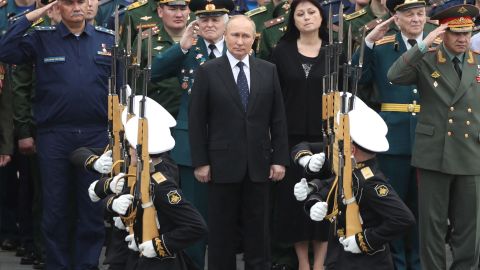
“By December 1914, the men in the trenches were veterans, familiar enough with the realities of combat to have lost much of the idealism that they had carried into war in August, and most longed for an end to bloodshed,” according to an account of the Christmas Truce in Smithsonian Magazine.
More than a century later, there’s little chance that Russian and Ukrainian soldiers will shower each other with gifts this winter. But the Christmas Truce story is an example of a peculiar feature of war that offers a warning to the beleaguered Russian army in Ukraine:
There are moments throughout history where entire armies suddenly stop fighting, though they are evenly matched or even numerically superior to their enemy.
What causes armies to lose the will to fight? And how might that play out with the Russian army in Ukraine?
This is the question that CNN asked combat veterans and military historians. While history is full of embattled armies like the Imperial Japanese Army in World War II, which fought with ferocious intensity even though they knew they would not win, it also records other armies that “quiet quit” — stopped attacking the enemy or did the bare minimum to stay alive.
Russia’s troops may be approaching that precipice, says Jeff McCausland, a combat veteran of the Gulf War and a visiting professor of international security studies at Dickinson College in Pennsylvania.
He says it’s become clear that the Russian army is poorly trained and supplied, and that its soldiers in many cases have lost their will to fight.
“Fear and panic are more infectious than Covid” for an army, says McCausland, co-author of “Battle Tested! Gettysburg Leadership Lessons for 21st Century Leaders.”
The sources for both fear and panic are varied. But McCausland and other historians say that throughout the history of warfare, there are at least three reasons why armies lose the will to fight.
McCausland has seen a broken army lose the will to fight up close.
He says he commanded a battalion during the Gulf War in 1990-1991 and saw so many Iraqi soldiers surrender that his unit had trouble accommodating the prisoners. They ended up giving water to the captured soldiers and pointing them toward the rear.
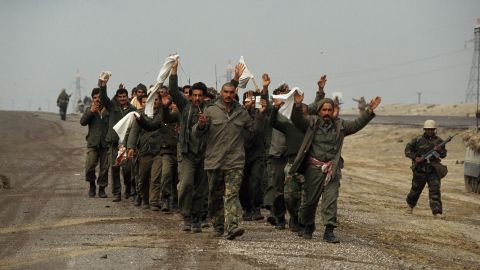
The war started when the Iraqi Army under Saddam Hussein invaded Kuwait. But many Iraqi soldiers simply didn’t think Kuwait or Iraq’s brutal leader were worth dying for.
“There was one instance where Iraqi soldiers surrendered to a drone that was circling over them,” McCausland says.
A more recent example of an army losing the will to fight came in Afghanistan.
Amid the US military’s withdrawal from the country in 2021, the Afghan National Army collapsed. They allowed the Taliban to quickly take control, even though the US had invested years and billions of dollars in training them. It was a low point for President Biden’s administration.
The reason for the Afghan army’s complex surrender could be distilled in one question, McCausland says.
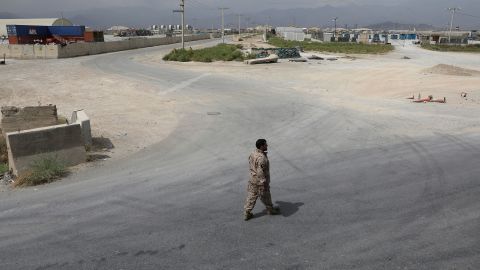
“If you asked a Taliban soldier, ‘What the hell are you fighting for?’ he would say I’m fighting to free my country from the crusaders, just like my grandfather freed the country from the Soviets and my great-great grandfather freed the country from the British. And I’m fighting for my religion, my country and my home,” McCausland says.
And if the same question was asked of an Afghan army soldier?
“He would say I’m fighting for a paycheck—if the company commander doesn’t steal it.”
The Taliban believed in their cause; the Afghan army didn’t, says McCausland.
Every war has its defining images. The Ukraine war has already yielded some unforgettable ones showing the contrast in leadership styles of Russian President Vladimir Putin and his Ukrainian counterpart, Volodymyr Zelensky.
Recent photos of Putin typically show him attired in a suit, alone at the head of an absurdly long conference table, in a large, sterile room, with a general or bureaucrat cowering at the other end. The caption could well read: “paranoid and isolated dictator in action.”

Contrast those images of Putin with those of Zelensky. One shows him standing resolute with his circle of advisors at night in Kiev after vowing not to abandon the city even though he and his family were in danger. Other photographs show him in fatigues, buffed and bearded, swapping hugs with soldiers on the front lines.
McCausland, who is also a national security consultant for CBS radio and television, says the images offer a lesson in leadership.
“Just look at both photos in terms of who would you like to work for,” says McCausland, who offers leadership workshops to companies, non-profits and government institutions through his company, Diamond6. “I don’t care whether you’re in the military or you’re working for a corporation. It’s pretty easy to decide.”
Armies lose the will to fight when they lose faith in their leaders, McCausland and others say.
They say soldiers don’t expect generals or other leaders to hunker down in frontline trenches with them. But they want to know if their leaders care for them and respect their sacrifice.
If you want to know how a leader can inspire an army to superhuman levels of endurance, consider this popular story from one of the greatest commanders in history: Alexander the Great.
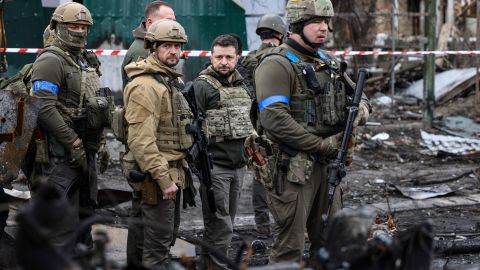
Alexander was leading his parched army through an unforgiving desert in pursuit of an enemy when scouts returned to him with a scoop of precious water in a helmet. They handed him the helmet in front of his army.
Alexander thanked the soldiers and then, in full view of his troops, poured the water on the ground. He announced he would not take any water unless all his men had the same. His troops cheered.
Alexander the Great never lost a battle.
“So extraordinary was the effect of this action that the water wasted by Alexander was as good as a drink for every man in the army,” one chronicler would write later.
We hear commentators warn about the dangers of hyper-polarization in American politics, the corrupting power of unregulated and virtually untraceable “dark money” and the breakdown of civic norms.
What many don’t say is that these trends can become a national security issue in times of war. Put simply, an army can quit when their country becomes too corrupt or divided to support them.
A classic example is the mass collapse of the South Vietnamese Army in the spring of 1975. The US military had been South Vietnam’s big brother and benefactor for a decade as both countries fought the Viet Cong and the North Vietnamese army.
But the South Vietnamese government was riddled with corruption. Its leaders and their cronies siphoned off military aid to enrich themselves, and never built popular support among the populace they purportedly served.
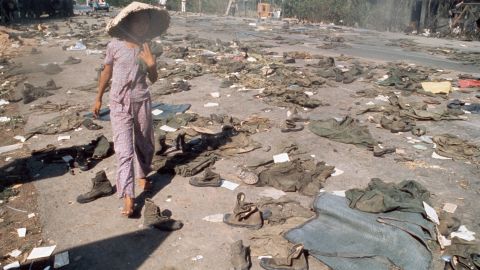
After the US military withdrew combat troops in 1973, the North Vietnamese army launched its final offensive on Saigon two years later. The South Vietnamese army refused to fight. News photos from that period show the army’s equipment littering roadways as soldiers abandoned their units and attempted to hide among the civilian population, says Derek Frisby, a historian at Middle Tennessee State University.
“Once it looked like North was going to take over the South, there was nothing the South Vietnamese army could do about it,” Frisby says. “Once the Americans left, it [the loss of South Vietnam) seemed inevitable.”
Wars aren’t just fought by soldiers. They are fought by a country, and its people and its institutions. They are what historian Michael Butler calls “social endeavors.”
The health of a country’s institutions – its government, military and media outlets – matter just as much as a soldier’s will to fight, says Butler, author of “Selling a ‘Just’ War: Framing Legitimacy and U.S. Military Intervention.”
Butler pointed to “On War,” the pioneering work by the 19th century Prussian military strategist Carl von Clausewitz, who wrote that the “forces of passion” are every bit as critical to a successful war effort as the military and the government.”
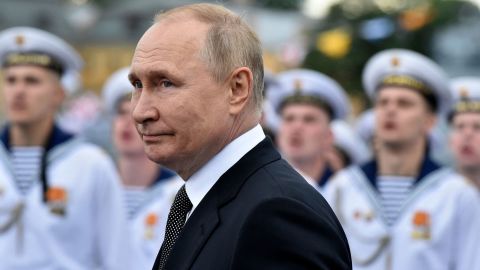
If a government is corrupt and does not have the trust of the people, its armies can lose the will to fight, Butler says. He says that appears to be taking place in Russia, where society has long been afflicted by a “societal malaise.”
Its citizens have experienced the traumatic breakup of the Soviet Union, rampant corruption, political apathy, and the crushing of independent media and dissenting voices, he says. Political apathy has grown.
The malaise afflicting civic Russia may be spreading to its military, he says, adding that the signs are already there in the thousands of men fleeing Russia to escape conscription.
“That’s pretty compelling evidence that that the forces of passion are not really effectively locked into this war,” says Butler, a political science professor at Clark University in Massachusetts. “It’s not surprising to see that playing out on the battlefield with troops who are deserting or disengaging.”
The forces of passion now, though, seem to favor Ukraine. Its army’s men and women (women soldiers serve in combat units in the Ukrainian military) know what they’re fighting for.
“Ukrainians are motivated by perhaps the strongest force a soldier can have – defense of their country, families and homes,” McCausland says.
The US military faced a crisis of morale half a century ago in Vietnam.
American troops never surrendered during the Vietnam War. They never lost a major battle during the war. The 1968 Tet Offensive, a failed campaign by North Vietnam’s army and the Viet Cong, was a military victory for the US.

And yet it was also a devastating political loss. The American public turned against the war. Antiwar protests rocked the country. The American public grew enraged when they learned their country’s political and military leaders had lied to them about the purpose and success of the war.
Many American combat soldiers simply lost the will to fight. The US’ abrupt withdrawal from Vietnam was one of the most humiliating chapters in our history.
The political context of the US’s war in Vietnam was different than the current war in Ukraine. In Russia, war protests have been crushed and the media has largely been uncritical of Putin’s conduct.
But on the battlefield, many Russian soldiers are discovering what some American soldiers realized in Vietnam — that they are fighting for a lie.
As John Kerry, a Vietnam combat veteran and future Senator who turned against the war, put it during a 1971 congressional hearing:
“How do you ask a man to be the last man to die for a mistake?’
This is the question that may haunt Russian soldiers in Ukraine this winter. If Putin doesn’t give them an answer that makes their hardships worthwhile, the mass migration of men fleeing Russia after conscription may spread to the battlefield.
And one frigid winter night, when the only sounds may not be of Christmas carols but of men dying on the battlefield, Russian soldiers may ask one another:
How do you ask a man to be the last man to die for a mistake?”


